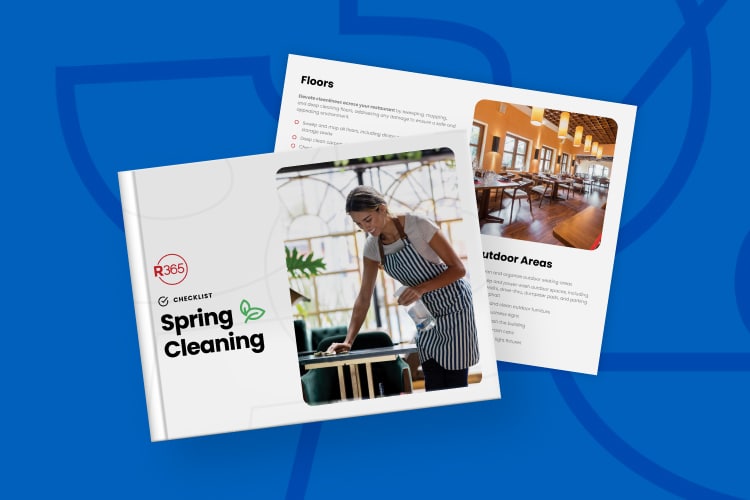Restaurant owners, operators, and managers are constantly faced with decisions about accounting, operations, inventory, customer service, and staffing. The restaurant industry moves at a fast pace, filled with data that changes by the day.
Are you able to step back and look at the bigger picture?
To keep up in a fast-paced industry, restaurants might consider adding a new role, commonly called “profitability strategist,” to the management team. A profitability strategist uses knowledge and expertise about your restaurant group’s data to increase efficiency and profitability.
Does your restaurant group have a profitability strategist? If you’re considering the possibility, here’s an exploration of how the role could impact your restaurant group.
What is a profitability strategist?
Essentially, a profitability strategist helps a restaurant optimize profitability and maximize potential.
The success of your restaurant business is heavily tied to your cash flow and financial management. Your restaurant group may have accountants or bookkeepers who help keep your numbers in line. However, a dedicated position like a strategist can draw from these accounting numbers, as well as operations, to make strategic decisions with long-term benefits.
A profitability strategist looks forward, proactively making informed decisions about how to maximize profit margins and reach KPI goals. A strategist evaluates areas of operations at a macro and a micro level, looking for new efficiencies.
The role may cover a wide range of areas, from front-of-house to back-of-house, or customer experience in the restaurant to off-premises. The exact responsibilities may look different at every restaurant group, but strategic recommendations could encompass everything from revamped training protocols to new marketing initiatives, and everything in between.
Why your restaurant group needs a profitability strategist
Lorenzo Castillo, Profitability Strategist at Maru Hospitality Group, described why he thinks a profitability strategist can be an asset for restaurants. “A profitability strategist role is a necessary part of every business. It is the part of business that works ‘on the business’ vs. ‘in the business’,” he said.
A profitability strategist can be a linchpin role, tying together big-picture strategy with nitty-gritty details. “In this role for Maru I am called upon to make decisions and bring to the table opinions and a side of view that blends hard data and real-world experience,” explained Mr. Castillo.
“Those are also the reasons why I am so successful in the role. I have a knack for spotting trends and inconsistencies as well as the knowledge that decisions made affect real people.”
As you examine how to optimize the profit margin for your restaurant group, there are two areas to consider: controlling costs, and increasing revenue. As we’ll get into next, a profitability strategist will work in both spheres.
A profitability strategist’s potential impact on cost savings
If a profitability strategist is not a current role in your restaurant, you may be considering whether it is worth carving out a position or not. However, if you examine the numbers and potential for cost savings, you may find that the savings can pay for the position (and then some).
Here are some areas where a dedicated position may create efficiencies in your expenses.
Optimizing Labor Costs
Because labor costs are one of your biggest expenses, streamlining labor costs is critical to keeping expenses under control.
Data should heavily influence labor cost decisions, but many restaurants struggle with how to fully utilize it. For example, sales forecasts can inform smart schedules that make the most out of available labor hours. While managers may always need to make some adjustments if sales fluctuate, a strategically written schedule can minimize disruptive changes for your staff.
By examining how you approach employee scheduling, a profitability strategist can help ensure managers have access to the data they need to schedule strategically and meet labor cost goals.
In addition, examining productivity of labor hours can help guide future scheduling decisions on a granular level. Metrics like sales per labor hour (SPLH) or customers served per labor hour can provide useful insights into how productivity fluctuates throughout the day. A dedicated examination of the data can lead to labor savings that add up, week after week and quarter after quarter.
Reducing CoGS
Your Cost of Goods Sold (CoGS), otherwise known as your food cost, makes up the other large part of your prime cost. Every efficiency you can add into your food cost is added to your profitability, so this can be another impactful area of focus for a profitability strategist.
Optimized CoGS starts with accurate and detailed inventory management, which informs all purchasing decisions. Empowering managers with reliable inventory information can help prevent under ordering or over ordering, decreasing overall CoGS.
Keeping track of your actual vs. theoretical (AvT) food cost can help point out where there are inefficiencies in your ingredient usage. Your AvT analyzes what inventory you should be using in theory, assuming no mistakes and perfect portions, compared to what you are using. The difference between the two represents food that is being wasted due to errors, spoilage, or improper usage.
Once you know the areas with a large AvT variance, it’s time to dig in and figure out what’s causing the discrepancy. A profitability strategist can oversee the investment it takes to root out what is causing variances, especially between locations. Over time, focusing on minimizing AvT variance can reduce food cost and result in new, efficient processes.
Finally, profitability strategist responsibilities may also cover regularly evaluating supplier relationships, examining historical price trends, comparing prices across locations, and looking for opportunities to negotiate better contract details.
Minimizing Food Waste
In addition to examining inventory and purchasing processes, a profitability strategist can also develop strategies for mitigating food waste.
Creating a culture of minimizing food waste, supported by managers championing the idea and staff members invested in the execution, is key to reducing food waste. By focusing on education and processes, a strategist can prioritize building habits that can have a big impact in the long term, such as training on proper storage, avoiding cross-contamination, and controlling portion size.
If your kitchens already use a waste log, are you examining the data that is generated? A waste log is used to note wasted product, with information about date, weight, and reasons for the waste. Devoting time to analyze food waste logs gives your restaurant group the ability to spot patterns, evaluate mitigation strategies, and optimize CoGS.
How a profitability strategist can help increase revenue
In addition to controlling costs, a profitability strategist is also key to increase top line sales, maximizing what is added to your bottom line. What areas might a strategist focus on?
Recommending New Revenue Streams
Especially after the disruptions of the COVID-19 pandemic, many restaurants have been experimenting with alternative revenue streams. After all the changes the restaurant industry has gone through, staying on top of marketing and business development goals is key to proactively creating new revenue streams.
A strategist can prioritize recommending strategies for navigating new revenue opportunities like delivery, takeout, ghost kitchens, or franchising activities.
In addition, a profitability strategist may work with your marketing team to get more customers in the door. Whether examining your digital marketing and online presence, or more traditional ways of drawing in foot traffic like promotions or local events, a strategist can help draw together business goals and marketing collaborations.
Implementing New Pricing
Menu engineering data ranks menu items by profitability and popularity. Leveraging menu engineering information into strategic pricing and promotional decisions can help increase revenue.
Promoting your popular and profitable menu item “stars” can help increase sales levels, adding to your bottom line. A profitability strategist may help your stores decide what to feature, and when, to improve profit margins.
Menu engineering data can also demonstrate where you may want to implement new pricing that leads to a better margin. Adjusting pricing without analyzing menu engineering information is a risky proposition, potentially impacting customer satisfaction and long-term loyalty. But through strategic, intentional pricing changes, you can either improve margins or nudge customers toward buying more profitable items.
Strategizing Business Growth
Finally, a profitability strategist can also contribute to taking the lead on long-term business strategy. This may include new initiatives, such as offering loyalty perks, or implementing a referral or new customer rewards program. It could also cover larger opportunities, such as off-premises revenue streams or new business models.
Ideal background of a restaurant profitability strategist
There isn’t one singular qualification for a restaurant profitability strategist, but generally, the role pulls on both big-picture thinking and a detailed understanding of day-to-day life in a restaurant.
An ideal candidate is analytical and curious, and should enjoy problem solving. The person may need to work both independently and in close collaboration with a team. And just like in every role, good communication about findings and ideas is key.
Mr. Castillo from Maru Hospitality Group summarized, “I would strongly recommend that anyone in this role has been able to work in every role of the restaurant in order to get an in-depth knowledge of the people, the product, the flow, and the feel of operations.”
He continued, “it is definitely a unique role fit for a unique person.”
While it may be a unique role, a profitability strategist also has a unique opportunity to drive restaurant growth.
Conclusion
There are many paths to sustainable profitability but adding a profitability strategist role to your restaurant group is one option to help your growth. By focusing on optimizing costs, while increasing revenue, a profitability strategist can help your restaurant run a more successful business over the long-term.
If your restaurant business is focused on long-term profitability, equip your team with tools that will help increase operational efficiency. Restaurant365 is an all-in-one restaurant management system incorporating restaurant accounting software, restaurant operations software, inventory management software, payroll + HR software, and scheduling software into a cloud-based platform that’s fully integrated with your POS system, as well as to your food and beverage vendors, and bank.



